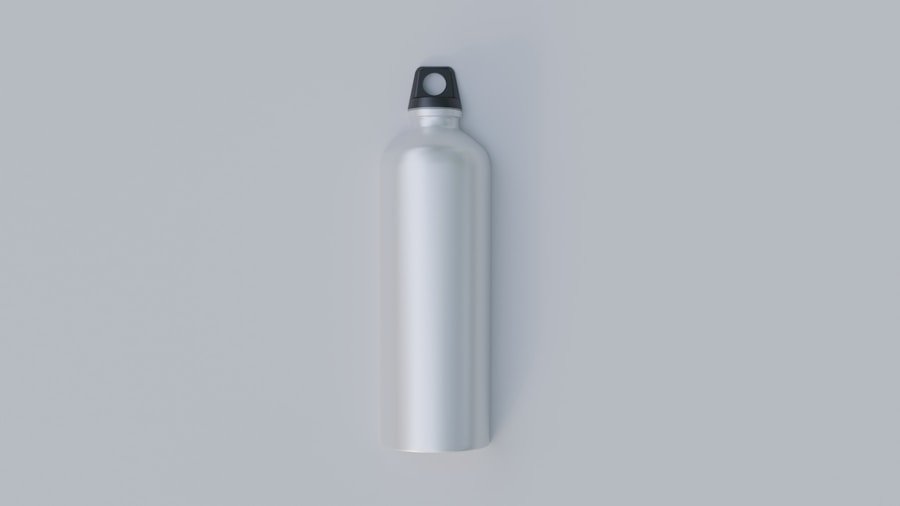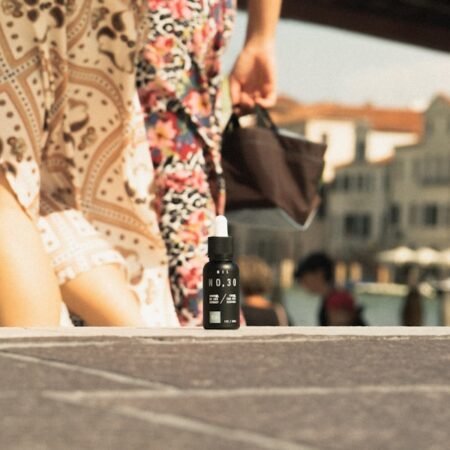Hydration plays a vital role, particularly during the hot summer months. As the body loses water through sweating, a process that accelerates in high temperatures, dehydration can occur. If left unaddressed, dehydration can lead to a range of health issues, including headaches, dizziness, and fatigue.
In extreme cases, it can even result in heat stroke, a potentially life-threatening condition. Consequently, prioritizing hydration during the summer is crucial for maintaining optimal health and well-being. Dehydration not only affects physical health but also has a significant impact on cognitive function and mood.
Research has demonstrated that even mild dehydration can cause decreased concentration, irritability, and a decline in cognitive performance. This is especially relevant for individuals who work or spend extended periods outdoors during the summer months. By maintaining adequate hydration, individuals can preserve their mental acuity and overall well-being.
Key Takeaways
- Staying hydrated in the summer is crucial for overall health and well-being.
- Drink plenty of water and electrolyte-rich beverages to stay hydrated in hot weather.
- Hydration hacks for outdoor activities include freezing water bottles and wearing a hydration pack.
- Hydrating foods and beverages for summer include watermelon, cucumbers, and coconut water.
- Signs of dehydration include dry mouth, headache, and dizziness; prevent it by drinking water regularly.
Tips for Staying Hydrated in Hot Weather
Drink Plenty of Water
Drinking plenty of water throughout the day is essential. The general recommendation is to drink at least eight 8-ounce glasses of water per day, but this may need to be increased during hot weather or if engaging in physical activity.
Consume Hydrating Foods and Beverages
In addition to drinking water, it is important to consume hydrating foods and beverages. Fruits and vegetables with high water content, such as watermelon, cucumbers, and strawberries, can help contribute to overall hydration. Beverages like coconut water and sports drinks can also help replenish electrolytes lost through sweating.
Avoid Dehydrating Beverages
It is also important to avoid excessive consumption of dehydrating beverages such as alcohol and caffeinated drinks. By following these simple strategies, you can stay hydrated and healthy during hot weather.
Hydration Hacks for Outdoor Activities
When engaging in outdoor activities during the summer, it is important to take extra precautions to stay hydrated. One simple hack is to freeze a water bottle the night before and take it with you on your outdoor adventure. As the ice melts, you will have a supply of cold water to keep you hydrated throughout the day.
Another hack is to invest in a hydration pack or belt that allows you to carry water hands-free while hiking or biking. For those spending time at the beach or pool, it is important to remember that being in the water can also lead to dehydration. The sun and heat can still take a toll on the body, so it is important to continue drinking water even while swimming or lounging by the water.
Additionally, it is important to reapply sunscreen regularly, as sunburn can further dehydrate the body.
Hydrating Foods and Beverages for Summer
| Tip | Description |
|---|---|
| Drink Plenty of Water | Stay hydrated by drinking at least 8-10 glasses of water per day. |
| Eat Water-Rich Foods | Include fruits and vegetables with high water content in your diet, such as watermelon, cucumber, and oranges. |
| Avoid Sugary Drinks | Avoid sugary sodas and energy drinks, as they can dehydrate you. |
| Use Sunscreen | Protect your skin from harmful UV rays by applying sunscreen with at least SPF 30. |
| Take Breaks in the Shade | Avoid prolonged sun exposure by taking breaks in the shade or indoors. |
In addition to drinking water, there are several hydrating foods and beverages that can help keep you hydrated during the summer months. Watermelon is a popular choice, as it is made up of about 92% water and also contains essential electrolytes such as potassium. Cucumbers are another hydrating option, with a water content of around 95%.
Other fruits and vegetables with high water content include strawberries, oranges, and lettuce. In terms of beverages, coconut water is a great option for replenishing electrolytes lost through sweating. It contains potassium, sodium, and magnesium, making it an effective way to stay hydrated during hot weather or after physical activity.
Sports drinks can also be beneficial for replenishing electrolytes, but it is important to choose options with lower sugar content. Additionally, herbal teas and infused water can provide a refreshing and hydrating alternative to plain water.
Signs of Dehydration and How to Prevent It
It is important to be aware of the signs of dehydration so that it can be prevented or addressed promptly. Common symptoms of dehydration include thirst, dry mouth, dark urine, fatigue, dizziness, and headaches. In severe cases, dehydration can lead to confusion, rapid heartbeat, and even fainting.
To prevent dehydration, it is important to drink plenty of fluids throughout the day and pay attention to your body’s signals. In addition to drinking water and consuming hydrating foods and beverages, it is important to take precautions when spending time outdoors in hot weather. This includes wearing lightweight, breathable clothing, seeking shade when possible, and avoiding strenuous activity during the hottest parts of the day.
It is also important to be mindful of medications that can increase the risk of dehydration, such as diuretics or certain blood pressure medications.
Hydration Tips for Kids and Seniors
Children and Dehydration
Children are particularly susceptible to dehydration during the summer months. They may not be aware of their body’s signals or may be too engrossed in playing to remember to drink water regularly. It is essential for parents and caregivers to encourage kids to drink water throughout the day and provide hydrating snacks such as fruits and vegetables. Setting reminders or creating a hydration schedule for kids can also be helpful.
Seniors and Dehydration
Seniors are at an increased risk of dehydration due to age-related changes in the body’s ability to conserve water. Additionally, some seniors may have mobility issues that make it more difficult for them to access water throughout the day. Caregivers should ensure that seniors have easy access to water and remind them to drink regularly.
Supporting Hydration in Seniors
It is crucial to provide seniors with a variety of hydrating foods and beverages that they enjoy. This can help encourage them to drink more water and stay hydrated. By taking these steps, caregivers can help reduce the risk of dehydration in seniors during the summer months.
Hydration and Exercise: How to Stay Safe and Healthy
Exercise is an important part of a healthy lifestyle, but it is crucial to stay properly hydrated when engaging in physical activity during the summer months. It is important to drink water before, during, and after exercise to prevent dehydration. The American College of Sports Medicine recommends drinking about 17-20 ounces of water 2-3 hours before exercise and 7-10 ounces every 10-20 minutes during exercise.
In addition to drinking water, it is important to be mindful of the signs of dehydration during exercise. This includes symptoms such as excessive thirst, dry mouth, fatigue, muscle cramps, and decreased performance. If you experience any of these symptoms, it is important to stop exercising and rehydrate immediately.
It is also important to be mindful of the heat index and adjust your exercise routine accordingly on particularly hot days. In conclusion, staying hydrated during the summer months is essential for maintaining good health and well-being. By prioritizing hydration through regular water consumption, hydrating foods and beverages, and taking precautions during outdoor activities and exercise, individuals can stay safe and healthy throughout the summer.
It is also important to be mindful of the unique hydration needs of children and seniors and take steps to ensure they stay properly hydrated as well. By following these tips and staying vigilant about hydration, everyone can enjoy a safe and healthy summer season.
FAQs
What are the benefits of staying hydrated during the summer?
Staying hydrated during the summer helps regulate body temperature, maintain proper organ function, and support overall health and well-being. It also helps prevent dehydration, heat exhaustion, and heat stroke.
How much water should I drink during the summer?
It is recommended to drink at least 8-10 glasses of water per day, but the amount can vary depending on individual factors such as age, gender, activity level, and climate. It’s important to listen to your body and drink water whenever you feel thirsty.
What are some signs of dehydration?
Signs of dehydration include dry mouth, headache, dizziness, dark yellow urine, fatigue, and decreased urine output. Severe dehydration can lead to confusion, rapid heartbeat, and fainting.
What are some tips for staying hydrated during the summer?
Some tips for staying hydrated during the summer include carrying a reusable water bottle, drinking water before, during, and after physical activity, consuming hydrating foods such as fruits and vegetables, and avoiding excessive alcohol and caffeine consumption.
How can I stay healthy during the summer?
To stay healthy during the summer, it’s important to eat a balanced diet, exercise regularly, get enough sleep, protect your skin from the sun, and manage stress. Additionally, staying hydrated and avoiding excessive heat exposure are crucial for maintaining good health during the summer months.














